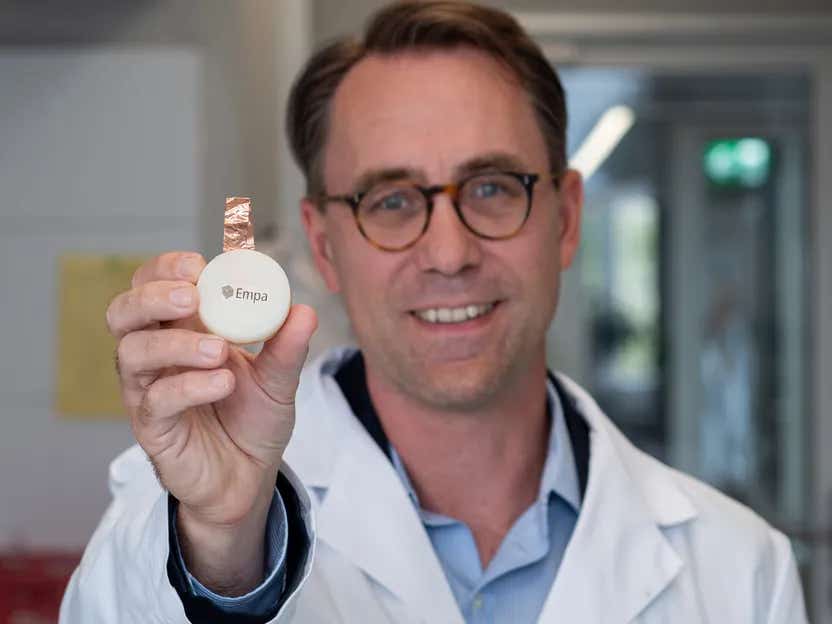Sugar substitutes affect the human body in unexpected ways, study finds
Sugar substitutes have been advertised as a healthier alternative to sugar, but are they really as harmless as we thought?

[May 11, 2023: Staff Writer, The Brighter Side of News]
Some non-nutritive sweeteners might actually be contributing to changes in sugar metabolism that they are meant to prevent. (CREDIT: iStock photos)
We've all heard of artificial sweeteners or non-nutritive sweeteners, the sugar substitutes that have been advertised as a healthier alternative to sugar, but are they really as harmless as we thought?
A recent study conducted by researchers at the Weizmann Institute of Science suggests that these sweeteners are not as inert as previously believed and can alter human microbiomes in a way that can change a person's blood sugar levels.
The trial conducted by the Weizmann Institute of Science involved 120 participants who were strictly avoiding any artificially sweetened foods or drinks. The participants were divided into six groups, with four groups receiving sachets of common non-nutritive sweeteners - saccharin, sucralose, aspartame, or stevia, and two other groups serving as controls.
The research was conducted by Dr. Jotham Suez, a former graduate student of Prof. Eran Elinav's, and now a principal investigator at the Johns Hopkins University School of Medicine, and Yotam Cohen, a graduate student in Elinav's lab. It was conducted in collaboration with Prof. Eran Segal of Weizmann's Computer Science and Applied Mathematics and Molecular Cell Biology Departments.
Related Stories
The trial showed that two weeks of consuming all four sweeteners altered the composition and function of the microbiome and of the small molecules the gut microbes secrete into people's blood - each sweetener in its own way. They also found that two of the sweeteners, saccharin and sucralose, significantly altered glucose tolerance, which can contribute to metabolic disease. In contrast, no changes in either the microbiome or glucose tolerance were found in the two control groups.
The changes induced by the sweeteners in the gut microbes were closely correlated with the alterations in glucose tolerance. "These findings reinforce the view of the microbiome as a hub that integrates the signals coming from the human body's own systems and from external factors such as the food we eat, the medications we take, our lifestyle and physical surroundings," Elinav says.
To check whether changes in the microbiome were indeed responsible for impaired glucose tolerance, the researchers transplanted gut microbes from more than 40 trial participants into groups of germ-free mice that had never consumed non-nutritive sweeteners.
In each trial group, the transplants had been collected from several "top responders" and several "bottom responders". Strikingly, recipient mice showed patterns of glucose tolerance that largely reflected those of the human donors. Mice that received microbiomes from the "top responders" had the most pronounced alterations in glucose tolerance, compared to mouse recipients of microbiomes from "bottom responders" and from human controls.
In follow-up experiments, the researchers determined how the different sweeteners affected the abundance of specific species of gut bacteria, their function and the small molecules they secrete into the bloodstream. They found that the changes induced by each sweetener in the gut microbiome were unique and varied greatly among different people, suggesting that the effect of non-nutritive sweeteners on human health may be highly personalized.
Changes in the composition and function of gut microbes were observed in all four groups of trial participants who consumed non-nutritive sweeteners. Each group consumed one of the following: saccharine, sucralose, stevia or aspartame. The diagram shows increases in glucose levels in the saccharin and sucralose groups (two graphs on the left), compared to the stevia and aspartame groups (middle) and to the two control groups (right). (CREDIT: Weizmann Institute of Science)
"Our trial has shown that non-nutritive sweeteners may impair glucose responses by altering our microbiome, and they do so in a highly personalized manner, that is, by affecting each person in a unique way," Elinav says. "In fact, this variability was to be expected because of the unique composition of each person's microbiome."
The study has significant implications for the use of non-nutritive sweeteners in our diets. The researchers suggest that the health implications of the changes that non-nutritive sweeteners may elicit in humans remain to be determined, and they merit new, long-term studies.
In the meantime, it's important to stress that our findings do not imply in any way that sugar consumption, shown to be deleterious to human health in many studies, is superior to non-nutritive sweeteners. Rather, the study highlights the importance of considering individual differences in response to these sweeteners and suggests that they should be consumed with caution.
The study's results have been met with mixed reactions from the scientific community, with some experts questioning the relevance of the findings to human health. Dr. John Sievenpiper, a researcher at St. Michael's Hospital in Toronto, noted that the study was conducted in a controlled laboratory setting and did not assess the long-term effects of non-nutritive sweetener consumption in humans.
Despite these limitations, the study has important implications for public health. Non-nutritive sweeteners are widely used in many processed foods and beverages, including diet sodas, protein bars, and sugar-free candies. Many people turn to these products as a way to reduce their calorie intake and maintain a healthy weight. However, the new study suggests that these sweeteners may have unintended effects on the body, particularly on blood sugar levels.
"Consumers should be aware that these products are not necessarily benign and may have unintended consequences," said Elinav. "Individuals should consult with their healthcare providers before making any changes to their diet, particularly if they are concerned about their blood sugar levels."
The study also underscores the importance of understanding the role of the gut microbiome in human health. Recent research has shown that the trillions of microbes that live in the human gut play a crucial role in regulating many aspects of our physiology, including our immune system, metabolism, and brain function. Alterations to the gut microbiome have been linked to a range of health problems, including obesity, type 2 diabetes, and autoimmune disorders.
"Our findings suggest that non-nutritive sweeteners may be one of many factors that can alter the gut microbiome and contribute to metabolic disease," said Elinav. "Further research is needed to fully understand the mechanisms underlying these effects and to develop strategies to promote a healthy microbiome."
"This study is a wake-up call that highlights the need for more research into the effects of non-nutritive sweeteners on human health," said Elinav. "We need to understand the risks and benefits of these products and to develop evidence-based guidelines for their use."
Study participants included Dr. Rafael Valdés-Mas, Uria Mor, Dr. Mally Dori-Bachash, Dr. Sara Federici, Dr. Niv Zmora, Dr. Avner Leshem, Dr. Melina Heinemann, Raquel Linevsky, Maya Zur, Rotem Ben-Zeev Brik, Aurelie Bukimer, Shimrit Eliyahu Miller, Alona Metz, Ruthy Fischbein, Olga Sharov and Dr. Hagit Shapiro from Elinav’s lab; Drs. Sergey Malitsky and Maxim Itkin from Weizmann’s Life Sciences Core Facilities Department; Dr. Noa Stettner and Prof. Alon Harmelin from Weizmann’s Veterinary Resources Department; and Dr. Christoph K. Stein-Thoeringer from the Microbiome & Cancer Division, German Cancer Research Center (DKFZ).
For more science and technology stories check out our New Discoveries section at The Brighter Side of News.
Note: Materials provided above by The Brighter Side of News. Content may be edited for style and length.
Like these kind of feel good stories? Get the Brighter Side of News' newsletter.
Joseph Shavit
Head Science News Writer | Communicating Innovation & Discovery
Based in Los Angeles, Joseph Shavit is an accomplished science journalist, head science news writer and co-founder at The Brighter Side of News, where he translates cutting-edge discoveries into compelling stories for a broad audience. With a strong background spanning science, business, product management, media leadership, and entrepreneurship, Joseph brings a unique perspective to science communication. His expertise allows him to uncover the intersection of technological advancements and market potential, shedding light on how groundbreaking research evolves into transformative products and industries.



